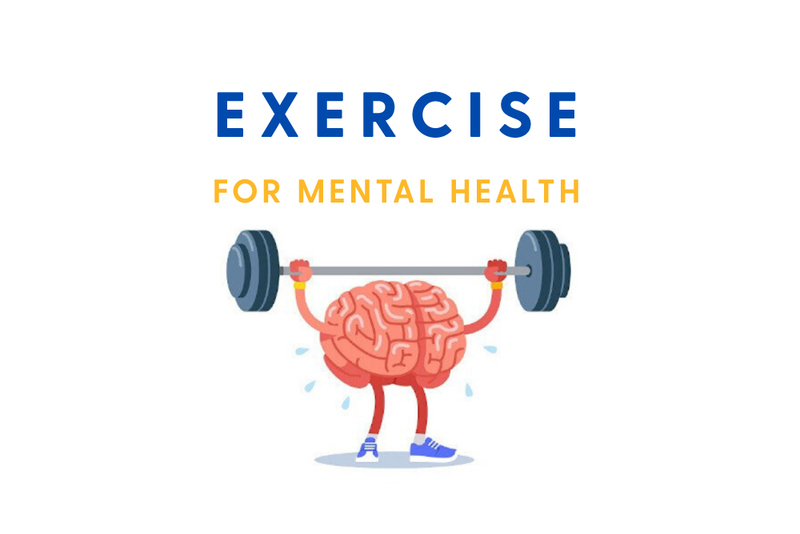The Impact of Exercise on Dopamine Function in Overweight Adults
Feb 07, 2024 By Madison Evans
Understanding the intricate connection between exercise and cognitive health becomes imperative in a world dominated by sedentary lifestyles. A commitment to regular physical activity can significantly enhance the well-being of overweight adults who often grapple with cognitive challenges.
1. The Dopamine Connection - A Primer
Pleasure and reward link intrinsically with dopamine, a neurotransmitter that intricately molds cognitive functions. It serves as an influential signaler in the brain, shaping mood, motivation, and decision-making. This complex interplay within neural circuits holds particular significance for overweight individuals. Understanding how their dopamine system functions provides crucial insights into crafting targeted interventions.
Exercise is a modulator of dopamine release and receptor sensitivity. It presents promising avenues for cognitive enhancement. In overweight individuals, the relationship between elevated body weight and dopamine signaling reveals an intricate dance. This is where obesity can potentially alter dopamine receptor availability. This is an impact that may influence reward processing, thereby contributing to cognitive challenges. By recognizing these nuances, we can formulate exercise strategies tailored to address the unique dynamics of dopamine in overweight populations.
- Weight-related alterations: Obesity may alter dopamine receptor availability, influencing cognitive function.
- Precision interventions: Crafting exercise strategies tailored to dopamine dynamics enhances cognitive benefits.
2. Exercise as a Catalyst - Boosting Dopamine Release
A powerful trigger for the brain's release of dopamine, physical activity actively accomplishes this task. Among overweight adults specifically, optimizing dopamine production hinges critically on the type of exercise they engage in. Therefore, it is beneficial to go beyond traditional aerobic exercises and incorporate activities with varying intensities and durations. For instance, interval training has been shown to elicit a more robust dopamine response. This contributes significantly to enhancing cognitive function, a profoundly positive impact.
Strength training, yoga, or even recreational sports: activities diversify the neurochemical response further. They engage different neural pathways and stimulate various brain regions. This ensures a comprehensive boost to dopamine levels. Individuals can unlock a richer array of cognitive benefits by broadening their exercise spectrum, thus reaping more substantial mental rewards.
- Interval training dynamics: Interval training can elicit a more robust dopamine response than steady-state exercises.
- Diverse activities, richer benefits: Incorporating varied exercises engages different neural pathways for enhanced cognitive impact.
3. Receptor Sensitivity - Strengthening the Dopamine Pathway
Compromised sensitivity of dopamine receptors in overweight individuals presents a challenge to mood and cognitive functions. However, regular exercise can act as a catalyst by promoting the development of more efficient dopamine pathways. It addresses this concern effectively. Further research indicates that consistent physical activity induces adaptations in these receptors, enhancing their sensitivity and responsiveness over time. This is an encouraging sign for long-term health management.

Crucial is our understanding of the mechanisms underpinning these adaptations. Research suggests that exercise-induced neuroplasticity, specifically within the striatum which is a brain region integral to reward processing, enhances dopamine receptor sensitivity. This finding underscores not only exercise's potential as a short-term mood enhancer but also its role in long-term strategies for bolstering cognitive resilience among overweight populations.
- Adaptive neuroplasticity: Exercise induces adaptations in the brain, enhancing dopamine receptor sensitivity.
- Striatal involvement: Neuroplastic changes in the striatum contribute to improved mood and cognitive performance.
4. Tailoring Exercise Routines for Optimal Results
When you aim for optimal impact on dopamine-related brain function, craft a tailored workout routine. This is imperative. It goes beyond the general categories of aerobic and resistance training. Indeed, it hinges on specific exercise choices. Consider high-intensity interval training (HIIT), renowned for its efficiency in not only aiding weight management but also effectively stimulating dopamine release.
Activities that align with personal preferences and interests enhance adherence to the exercise routine. Dancing, hiking, or team sports, the joy derived from such activities amplifies their positive impact on dopamine levels. By customizing the routine based on individual choices: sustained engagement is guaranteed, a promoter of long-term cognitive benefits.
- HIIT efficiency: High-intensity interval training is efficient for both weight management and dopamine stimulation.
- Personalized preferences: Aligning exercise routines with personal interests enhances adherence and cognitive benefits.
5. Overcoming Barriers - Motivation and Consistency
Exercise consistency remains paramount. However, overweight individuals might face distinctive motivational obstacles. Overcoming these challenges hinges on the establishment of attainable goals which is a pivotal strategy. Considering individual fitness levels and adapting progressively as the journey evolves, realistic objectives should be set. Incorporating variety into exercise routines not only alleviates boredom but also addresses the psychological aspect of adherence.
The pivotal role of social support in sustaining a long-term commitment to physical activity cannot be overstated. Workout buddies, group classes, or online communities foster a sense of camaraderie that yields accountability and motivation. To create an enduring and rewarding exercise routine, you must recognize these motivational barriers and actively address them.
- Realistic goal-setting: Achievable goals, tailored to individual fitness levels, enhance long-term adherence.
- Community support: Social connections provide accountability and motivation for consistent exercise.
6. Beyond the Physical - Mental Health and Cognitive Resilience
Exercise's impact surpasses physical health, profoundly bolstering mental well-being and cognitive resilience in overweight adults. Research suggests that consistent physical activity doesn't just mitigate symptoms of anxiety and depression. It also augments stress tolerance. Such mental health advantages, combined with enhancements in cognitive function, underscore the comprehensive role of exercise in combating weight-associated cognitive difficulties.

Consistent exercise bolsters cognitive resilience, the capacity to adapt and rebound from cognitive stressors. This resilience proves indispensable not just for daily functioning but also enhances life quality among overweight individuals. By acknowledging exercise as a multifaceted tool promoting mental and cognitive well-being, we underscore its critical role in comprehensive health management.
- Stress resilience: Exercise not only alleviates anxiety and depression but enhances overall stress resilience.
- Cognitive adaptability: Consistent exercise contributes to cognitive resilience, vital for daily functioning and quality of life.
Conclusion
In conclusion, the symbiotic relationship between exercise and dopamine-related brain function offers a promising avenue for overweight adults in pursuit of cognitive enhancement. Understanding this connection scientifically, adopting tailored consistent exercise routines. These steps can launch individuals into transformative journeys toward improved cognitive well-being. Shedding pounds isn't merely the objective here. Unlocking the mind's full potential via physical activity's potent medium is also crucial.







